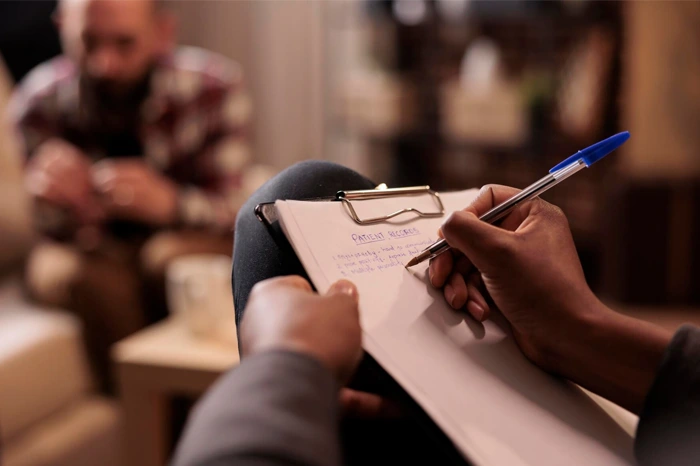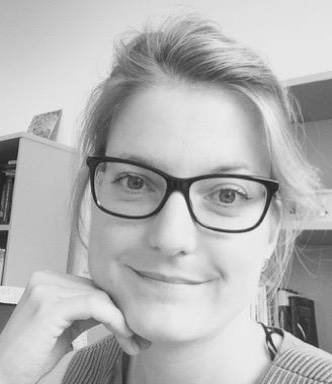

The SIPR Evidence and Investigation Network is pleased to announce their 4th networking event: Applied Psychology in Policing Settings (APPS), taking place at the University of Aberdeen Kings College Conference Centre on Wednesday 16th April 2025, 10am to 4pm.
This event will bring together researchers and practitioners interested in applying psychological research in policing practice. The event will feature:
During these sessions, attendees will have a unique opportunity to network and develop key connections, start new collaborations, or identify new avenues for funding. Each one-hour keynote session will be followed by an hour reserved for discussion. To facilitate discussions, we reserved separate rooms for each speaker, so attendees may approach any or all the speakers during the hour. During the Academic Challenge Session/Impact Forum, practitioners will pitch a current issue, and all attendees will have the opportunity to contribute their ideas aimed at developing a research solution.
Novel Markers of Concealed Face Recognition: Emerging Technologies for Future Policing
Dr Ailsa Millen
In policing, suspects might deny recognition of criminal associates during interviews. To address this problem my research develops novel Concealed Information Tests (CITs) for face identification. In this talk, I will present my research on objective markers of concealed face recognition. The talk will highlight the potential of emerging technology for identifying concealed face recognition, and the importance of understanding individual differences in this context. I am looking forward to discussing how these novel approaches could be integrated into policing and investigative practices, and how AI might be used to create and optimise Concealed Information Test line-ups. I will also be happy to discuss my related research on “public perceptions of technology in the criminal justice system” and “advancing human-avatar interactions in policing and defence,” both of which highlight the importance of understanding cognitive and cultural diversity in these contexts.
What makes us look human? The curious case of hyperrealistic AI
Dr Clare Sutherland
In this talk I will discuss the advent of generative artificial intelligence (AI) models of human faces, and what this new technology means for people’s ability to tell apart real human and ‘deepfake’ AI face images. I’ll discuss our recent international work showing that people now cannot tell the difference between real and AI faces, and that in some cases, AI faces look more realistic than do real human faces – a phenomenon we term ‘AI hyperrealism’. I’ll also draw on our investigations into the visual cues that distinguish real and AI faces, discuss which aspects of human perception are accurate (and which are inaccurate), and outline individual differences in how accurately different people are able to identify AI faces. I welcome an open discussion about the societal impacts of this technology and how we can collectively act to ensure that AI technology is used for the benefit of the public, minimising harm.
Improving eyewitness identifications with confidence
Dr Travis Seale-Carlisle
Many believe eyewitness memory is unreliable, and for good reason. Research shows memory is highly malleable, to the point where people can confidently recall traumatic events that never happened. Moreover, mistaken eyewitness identifications—often made with high confidence in court—have contributed to over 70% of the 358 wrongful convictions overturned by DNA evidence since 1989.
However, recent studies show that eyewitness confidence is a strong indicator of accuracy when measured during an initial, uncontaminated lineup. When these conditions are met confidence and accuracy are strongly related such that low confidence indicates low accuracy while high confidence indicates high accuracy. Crucially, in every DNA exoneration case where initial confidence was documented, the witness initially expressed low confidence, highlighting that their identification was error-prone and unreliable.
There is now widespread agreement among researchers on the strong link between initial confidence and identification accuracy. Many countries have updated their policies to require documentation of eyewitness confidence from the initial identification. Despite its rigorous lineup procedures, the UK does not mandate collection of confidence statements. Implementing this simple reform would improve the reliability of eyewitness identification evidence and help prevent wrongful convictions. The time has come for the UK to follow suit.
Automated face recognition assists with face identity mismatches, but can bias users and its decisions are commonly (and often incorrectly) overruled by humans.
Dr Anna Bobak
Automated facial recognition (AFR) systems are becoming increasingly prevalent in society, yet they require human oversight. Our research was the first to analyse outcomes from a state-of-the-art AFR system applied to an ethnically diverse set of faces with a low-prevalence mismatch rate while also testing a varied participant group from the London area. Even though participants were accurately informed about the system’s high level of accuracy, they frequently overrode its decisions, resulting in only slight improvements in overall performance. Notably, when presented with a binary AFR decision (match or mismatch), participants quickly adopted a liberal response strategy, increasingly favouring ‘match’ at the expense of ‘missing’ mismatches – a costly error during important identity checks. Our findings showed no clear link between AFR aided accuracy and trust in AFR, nor did participants’ perceived accuracy of the system correlate with their actual performance. Importantly, those who only received the binary decision (match or mismatch), rather than a ‘similarity rating’ tended to be overly confident when assessing face pairs near the AFR’s decision threshold. In contrast, participants given similarity ratings effectively incorporated this information into their judgments. Based on these results, we recommend that users always have access to the AFR similarity score
Using Human and Non-Anthropomorphic Avatars in Investigative Interviews with Young People
Sam Conway
This PhD research investigated the effect of human-operated avatars on the quality of young people’s disclosure, episodic recall, and susceptibility to false information among young people (11-17 years old). Using a mock investigative interview paradigm, Study 1 compared human interviewers with human-appearing avatars, also manipulating whether avatars were of the same or opposite sex as participants. Study 2 compared human interviewers with non-anthropomorphic avatars (a faceless, disembodied shape). Across Study 1 and Study 2 avatar interviewers, regardless of their visual appearance, elicited comparable levels of disclosure and eyewitness recall as human interviewers. Study 3 explores the opinions of Scottish child forensic interviewers on the challenges and benefits of introducing avatar-based interview methods in practice. Three themes were generated through reflexive thematic analysis. There was a willingness among practitioners to adopt avatar technologies with young people, recognising that technology fosters rapport-building with young people (Theme 1). However, this was offset by some concerns over how avatars might create an emotional detachment from young people compared with face-to-face interviews (Theme 2). Practitioners also discussed the court’s lack of child-centric approaches and anticipated avatar-elicited evidence would be scrutinized (Theme 3). The practical implications of these findings are discussed, alongside future research directions.
Using virtual reality to study and improve eyewitness testimony
Dr Rui Paulo
Witnesses play a critical role in criminal investigations, but cognitive processes such as memory often influence their ability to recall important details. To address this, psychologists developed science-based interview techniques that improve witness memory and statements. Our team also created new retrieval strategies (e.g., Category Clustering Recall) that the police is already using to interview witnesses, victims, and informers in cases of kidnap, arson, extortion, fraud, and trafficking.
However, much of the research supporting the use of these techniques employed a mock-witness paradigm, where participants observed a crime on a 2D screen. This does not accurately reflect real-life eyewitness experiences, raising concerns about the effectiveness of these methods in real investigations.
With the rise of immersive virtual reality (VR), this project evaluated the effectiveness of different interviewing strategies recommended as best practice in a more realistic setting using a 360-degree mock-crime presented on a VR headset. Further, we tested for the first time whether virtual interview rooms that the police could access using existing technology and incorporate contextual information from the crime scene can be used to enhance eyewitness testimony further.
Enhancing Support for Vulnerable Individuals in Investigative Interviews: The Impact of Alcohol and Video-Recorded Testimonies on Justice Outcomes
Dr Julie Gawrylowicz
This presentation addresses key issues related to supporting vulnerable individuals in the criminal justice system, with a focus on investigative interviews. It will highlight research on the effects of alcohol on memory recall, examining the implications for interviewing intoxicated witnesses and victims. Additionally, the presentation will introduce a new line of research involving Video-Recorded Interviews (VRIs) with victims, exploring how the quality of these recordings influences jurors’ perceptions of credibility. As technological advancements make VRIs increasingly common across Scotland, understanding their impact on jury decision-making is crucial to ensuring fair trials and achieving the best outcomes for victims.
Exploring the Practice of Interviewing Witnesses in Cases of Domestic Abuse
Dr Eva Rubinova
Tackling domestic abuse, gender-based violence, and violence against women and girls is one of the main priorities for the Scottish Government (2018) and the Scottish Police Authority (2024). Within this multi-faceted issue, the present project takes the perspective of investigative interviewing to better understand how evidence in these cases is collected.
Domestic abuse is frequently reported only after multiple occurrences of abuse, sometimes after long delays. Research has shown that individuals (children and adults) remember recurring/repeated events differently than single/unique experiences. For example, when reporting on instances of repeated events, individuals may focus on reporting “what usually” happens without providing details of instances, and if they do report on instances, they frequently misattribute what happened when.
Emerging research indicates that some interviewing strategies may help individuals provide more detailed and accurate reports about repeated events, though this research typically lacks connection to real-world practices. The present project aims to collect information about practices currently used by Police Scotland officers when collecting statements from witnesses of domestic abuse. Knowledge of these practices will inform our future research focused on developing interviewing interventions that may facilitate reporting in cases of domestic abuse.

Dr Ailsa E. Millen is a Chartered Cognitive Psychologist and Assistant Professor of Memory and Cognition at the University of Stirling. She specialises in face recognition, deception, and technological credibility assessment, with a focus on individual differences and neurodivergence. She leads research on concealed information tests for face identification, public perceptions of technology in the criminal justice system, and the development of intelligent avatars for policing and defence. Her research is funded by the ESRC, Brain, BPS, Crucible, and DSTL. Dr Millen leads the Stirling Cognition Group and Co-Chairs the Neurodiversity Hub for Research in Policing, Security, and Defence (with DSTL). She engages and collaborates with key stakeholders to translate psychological research into evidence-based applications for policing, security, and defence (Police Scotland, Home Office, the NCA, DSTL, UK Biometric Working Group,). She completed her PhD at the International Research Centre for Forensic Psychology in Portsmouth in 2015 and has been a researcher and lecturer at the University of Stirling since 2016.

I completed my PhD on face perception and trust at the University of York in 2015 then continued my research at the University of Western Australia (UWA), first as a research associate then research fellow (2015-2019). I am an honorary Research Fellow at UWA but am now based at the University of Aberdeen (2019-) where I lecture and research in social psychology and face recognition. My work has looked at how we make subjective social judgements from faces, the development of face recognition, individual differences in face recognition and the rise of AI models of recognition. During my PhD I also completed an internship at the Home Office on cybercrime in the Crime, Policing and Analysis Unit, where I worked on characterising online and offline offenders, amongst other topics. I am keen to support students to work on public-facing research: my own students have completed internships in the Australian and Scottish governments and the Cabinet Office. I am interested in face recognition, face AI and face expertise. My research has also looked at demographic differentials in face recognition AI. I have published scientific reports, policy papers and advisory briefs on these topics together with lawyers, computer scientists and forensic experts.

I received my PhD at the University of Portsmouth, UK. Following my PhD, I worked as a Postdoctoral Fellow at Thompson Rivers University, Canada, with Prof Heather Price. I joined the University of Aberdeen in 2022, where I am now a Lecturer. I am also a Board Member and Chair of the Committee on Diversity and Inclusion of the Society for Applied Research in Memory and Cognition (SARMAC). My primary research and teaching interests are in Experimental Psychology & Law/Forensic Psychology. With my research, I aim to address questions related to how people remember unique and repeated experiences and help define practices that can be used by investigators to effectively elicit information. My current projects involve the use of immersive virtual reality to study eyewitness memory for interpersonal conflict in the context of domestic abuse.

Dr. Julie Gawrylowicz is a Reader in Applied Cognitive Psychology at Abertay University, specializing in memory within applied contexts, particularly forensic settings. Her research focuses on the reliability of eyewitness testimony and the efficacy of police investigative interviews. She has explored factors influencing memory recall, including the impact of alcohol consumption and strategies to enhance interviewing techniques for vulnerable populations, such as young people, individuals with intellectual disabilities and older adults. Dr. Gawrylowicz earned her PhD from Abertay University in 2010, with a dissertation examining facial composite construction by individuals with intellectual disabilities. Following her doctoral studies, she held academic positions at London South Bank University and Glasgow Caledonian University before returning to Abertay in 2018. In her current role, she teaches courses in Introductory Psychology, Evidence-Based Thinking, and Forensic Psychology, and is programme leader for the two Forensic Psychology programmes: BSc Psychology with Forensic Investigative Psychology and BSc Psychology with Forensic Scene Investigation. In addition to her academic work, she provides consultancy for the Joint Investigative Interviewing Team and the Police Scotland Interview Advisor Course, applying her expertise to improve investigative practices. Dr. Gawrylowicz also supervises undergraduate and PhD students, contributing significantly to the academic community through both teaching and research.

Rui Paulo is an Associate Professor in Forensic Psychology at Birmingham City University. His research is focused on cognition and memory (particularly eyewitness memory) and investigative interviewing of crime witnesses and victims. His work impacted international policy, practice, and training, namely with the methods he created to interview witnesses and victims being adopted by international police forces and included in the training curriculum of Law Enforcement Agencies. His research resulted in media coverage, and he is actively engaged with the research community namely as an editor, reviewer, and author of several articles in peer-reviewed journals, handbooks, and books. Further, he led undergraduate and postgraduate degrees in Forensic Psychology in the UK and abroad and supervises postdoctoral researchers and postgraduate students. He coordinated several research groups, themes, and clusters in the field of Forensic Psychology and is the Principal Investigator in externally funded interdisciplinary research projects.

I earned my BA from the University of California, San Diego in 2012 and my PhD from Royal Holloway, University of London in 2017. Since then, I have completed postdoctoral fellowships at Royal Holloway (2017-2018), the University of Birmingham (2018-2019), and Duke University (2019-2021). I then joined the School of Psychology at the University of Aberdeen as a Lecturer (Assistant Professor) in 2021. My research throughout this time has covered several areas of cognition such as decision-making, memory, and language. Broadly speaking, my research seeks to advance our theoretical understanding of human memory so that memory can be more reliable in applied and forensic settings. One line of my research aims to improve eyewitness identification procedures. I make use of signal-detection theory to guide my thinking and often incorporate machine-learning techniques to test competing research hypotheses.

I completed my PhD in 2016 at Bournemouth University. My thesis was the first comprehensive examination of people with superior face recognition skills, so-called super-recognisers. After my PhD, I joined Prof. Peter Hancock’s group at University of Stirling where I studied human-computer interaction. In 2019, I became a Leverhulme Fellow and worked with people affected with face blindness (prosopagnosia). Currently, I am one of the investigators in a ESRC-funded multi-national team studying the way we can increase eye-witness identification using 3D interactive lineups in Virtual Reality. Overall, I am interested in individual differences in unfamiliar face recognition. What are the true boundaries of face recognition and what processes we recruit to tell whether two faces are the same person or two different people? Recently, I have also been working on how we recognise faces after considerable time has passed (aging) and how automated face recognition interacts with human decision-making.

I am a Psychology PhD student at Abertay University in Dundee. I started my PhD in June 2021. My research focuses on how the use of novel technologies (such as avatars) might assist forensic interviewers with eliciting disclosure and episodic memory from children. In 2019, I graduated with a BSc in Psychology from Abertay University. In 2020, I graduated with an MSc in Forensic Psychology from Glasgow Caledonian University, where my dissertation focussed on exploring police officers’ experience of burnout and unfair working conditions. My research interests are in applied memory research and investigative interviewing. I am particularly interested in how technologies might be used to improve eyewitness memory and forensic disclosure processes. In addition to working with young people in forensic settings, I am also interested in missing persons’ research.